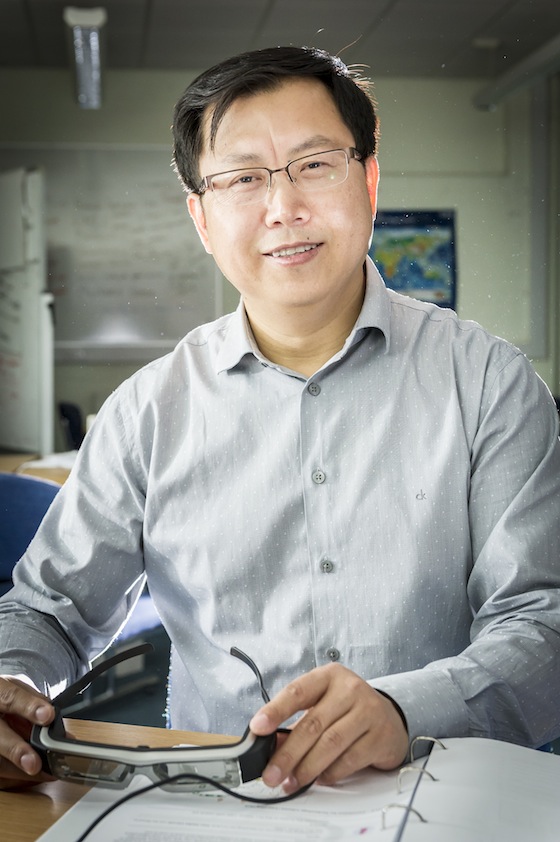Technology that could alert you if your elderly parents fall ill at home or which could help dementia patients better manage their condition are being developed in a major new research project.

Professor Liming Chen, of De Montfort University Leicester (DMU)’s School of Computer Science and Informatics, is leading the four-year €3.88million ACROSSING project which could transform the lives of older people around the world.
Ageing populations are becoming common, in part due to the post-war baby boom generation and better standards of living. However, as people get older they are more likely to suffer physical and cognitive problems, which places extra pressure on healthcare services.
The research will develop advanced technologies before testing them in lab environments and in real care homes, evaluated by elderly volunteers and healthcare staff.
Using everyday technologies such as smartphones, tablets and wearable sensors – supported by behind the scenes artificial intelligence and data analytics – researchers will examine how devices can be used to improve patient care.
Examples could be using a smart watch to monitor the user’s vital signs, a smartphone to detect early signs of depression by analysing behaviour patterns, or a “smart home” fitted with sensors to monitor and detect subtle behaviour changes of occupants, spotting health issues and alerting relatives or healthcare professionals – all done unobtrusively and automatically.
Studies will be concentrated in four areas:
• Helping people with chronic physical conditions such as arthritis
• Empowering patients to better manage their condition
• Wellbeing and early risk detection
• Independent living for people with conditions such as dementia
Prof Chen will lead a team of 15 early stage researchers to work on 15 separate but complementary individual research projects. The research will investigate and develop advanced technologies and platforms in four core underpinning research themes, namely sensing and monitoring, behaviour analysis, human machine interaction and technology infrastructure for healthcare service delivery.
The project involves 10 partners from the UK, Spain, Germany, Austria, Greece and the Netherlands and 16 associated partners from Belgium, Italy, China, Ireland, Sweden, Switzerland, drawn from world-recognised research institutions, universities, and the ICT and healthcare industry.
Funding for the ACROSSING project has come from the prestigious EU Horizon 2020 Marie Sklodowska-Curie European Training Network Programme. In addition to excellent research, the programme places special emphasis on the training of future researchers.
Prof Chen said: “This is a timely effort to address the drastic demographic change and its impact on our society and economy. We will not only develop next-generation state-of-the-art advanced technologies and platforms for smarter assisted living, but also, even more importantly, train young researchers to become future research leaders with strong academic-related competences, forward-thinking visions, wider perspectives, innovation mind set and extensive research networks.
“What is even more exciting is the multidisciplinary cross-sector training, which will produce highly competent researchers and research leaders. It is them who will shape the future European research landscape and become the driving forces for the European research on smart homes.”
Posted on Wednesday 14 October 2015